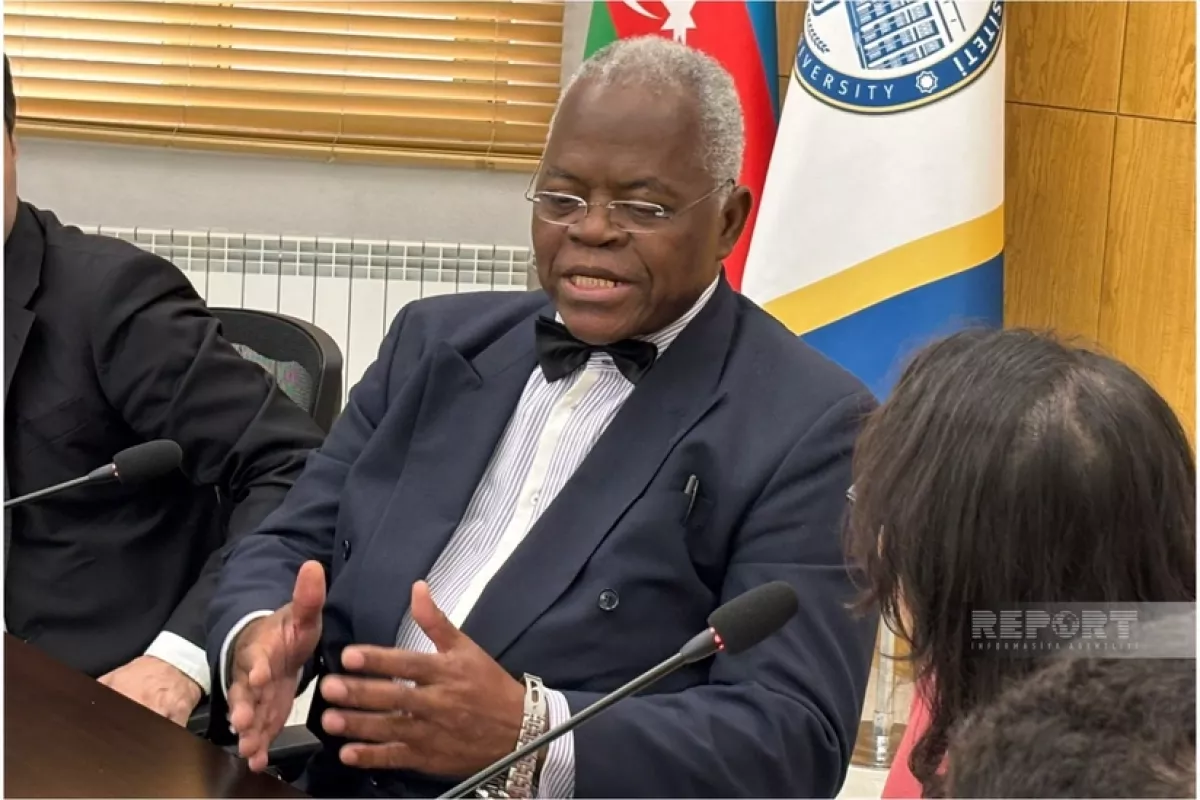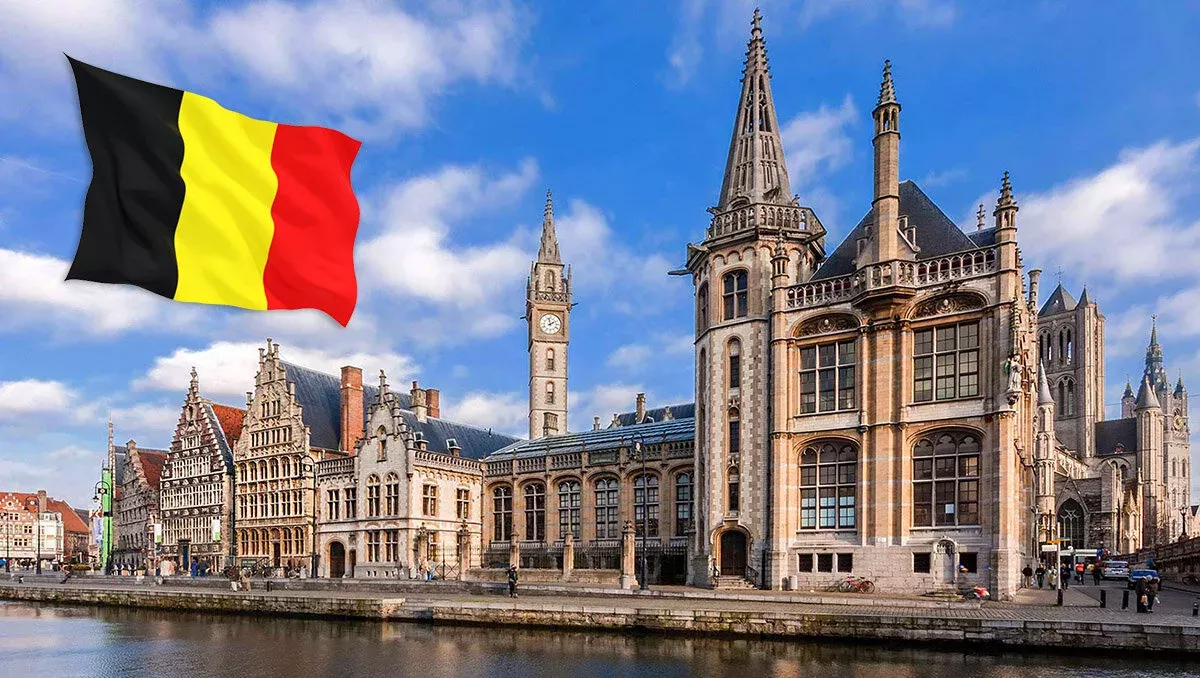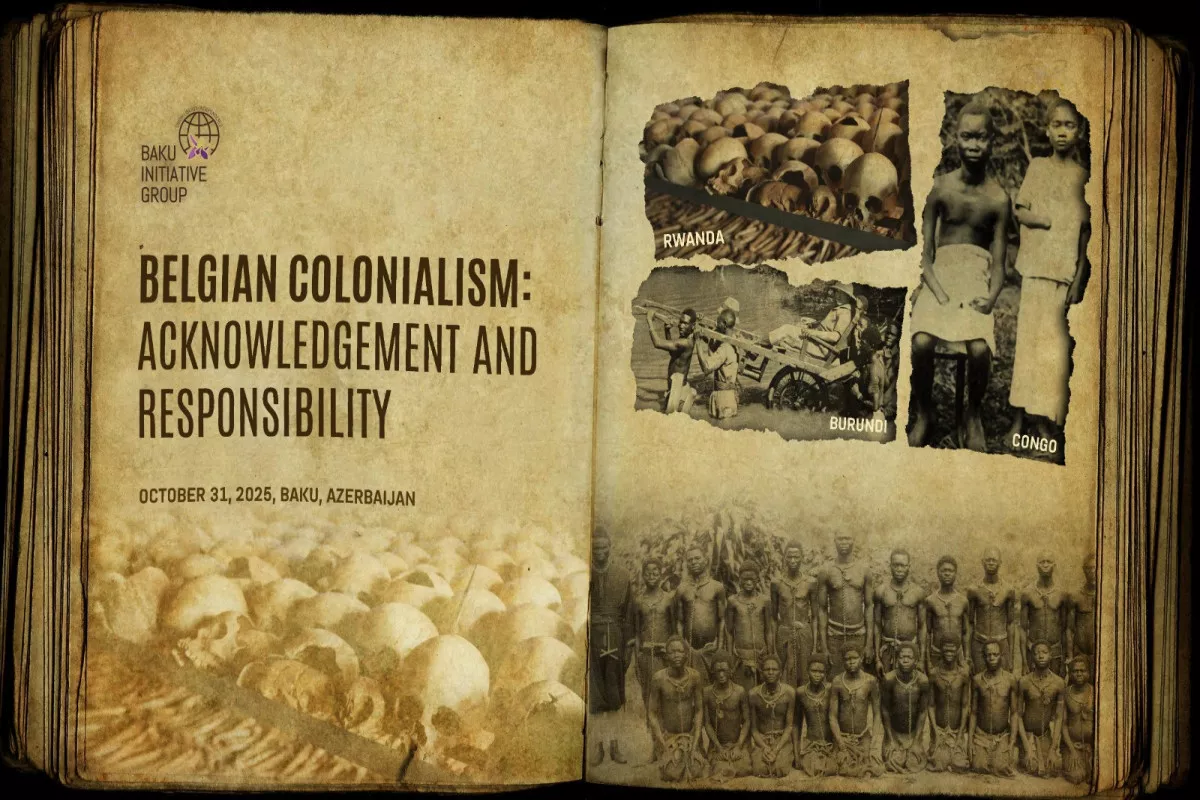Shadows of empires and the voice of justice Baku against historical amnesia
The Baku Initiative Group (BIG) has once again demonstrated that Azerbaijan does not remain indifferent to global issues of historical justice. This time, the focus of serious discussion was one of the bloodiest and most neglected chapters in African history — the colonisation of the Democratic Republic of the Congo.
During a recent discussion at Baku State University on the topic “Belgian Colonialism in Central Africa and Its Lasting Consequences,” journalist and independent researcher from the Congo, Dieudonné Kwebe-Kimpele, noted that the BIG initiative deserves high praise, as it brings attention to issues that the international community has long preferred to ignore.
"While this issue is not being discussed in the international community, the Baku Initiative Group is re-examining 140 years of colonial history,” he emphasised.

The history of Belgian colonialism in Central Africa is indeed one of the darkest chapters of humanity. When King Leopold II of Belgium proclaimed the so-called Congo Free State in 1885, he effectively turned a vast African territory into his personal possession. Under the slogans of a “civilising mission” and the “fight against slavery,” the Belgian monarch established a system based on brutal coercion, mass killings, and economic plunder.
To extract rubber, ivory, and other natural resources, the royal administration imposed monstrous production quotas, and villages that failed to meet them were subjected to punitive expeditions. Estimates suggest that during Leopold II’s rule (1885–1908), between 10 and 15 million Congolese—about half the country’s population at the time—died at the hands of his agents and soldiers. People were killed, mutilated, and entire settlements were burned. Severed hands became a symbol of that era, brought back as proof of “order fulfilment” and to conserve ammunition.
In 1908, the Kingdom of Belgium officially annexed the Congo, and exploitation continued—only now under the guise of state institutions. Discrimination, the imposition of Christianity, and the destruction of local cultures and traditions flourished within the colonial administration and missionary structures.
By the mid-20th century, Belgium had turned the Congo into one of the main sources of its industrial wealth. Copper, gold, diamonds, rubber, tin, uranium, cotton, and palm oil were extracted on a massive scale. Historians have calculated that in just the first half of the 20th century, Belgium exported natural resources from the Congo worth more than $100 billion in today’s terms. Considering the full extent of exploitation, colonial policies provided Belgium with the prosperity on which it built its modern state, while leaving Africa with devastated societies, poverty, and internal conflicts.

The severe consequences of Belgian rule are still felt in the Congo today. Despite possessing some of the world’s largest reserves of copper, cobalt, uranium, and rare earth metals, the country remains one of the poorest on the planet. It is important to note that the legacy of colonialism extends beyond economic dependence to artificially created ethnic tensions, political instability, and reliance on external centres of power.
It is telling that after the Congo gained independence in 1960, Western powers did everything possible to prevent the emergence of a truly sovereign Congolese state. The assassination of the country’s first Prime Minister, Patrice Lumumba, became a symbol of how former colonial powers sought to maintain control over their “former” territories.
Today, as many European countries attempt to rewrite their colonial histories, presenting themselves as “enlighteners,” the Baku Initiative Group has become one of the few international platforms openly addressing the crimes of colonialism. BIG goes beyond declarations—it undertakes practical and analytical work to support peoples who continue to suffer from the consequences of colonial domination.

In recent years, the organisation has actively drawn attention to the situation of countries that were former French colonies, helping to dismantle stereotypes and defend peoples’ right to historical memory and justice. The Baku Initiative Group’s support for African peoples is a demonstration of Azerbaijan’s deep solidarity with those who have endured occupation, violence, and plunder. Having experienced foreign aggression, injustice, and bias firsthand, the Azerbaijani state fully understands what it means to struggle for independence, dignity, and the right to be heard.
This stance is the only correct one. When the world remains silent about the crimes of colonialism, it is not mere forgetfulness—it is a continuation of injustice. While many European capitals have yet to acknowledge the full scale of their colonial atrocities, it is the voice from Baku that reminds us: no prosperity can be built on the blood of millions. Most importantly, the Baku Initiative demonstrates that the time for historical truth has come.
Colonial empires have vanished, but their shadows remain—in economic dependence, inequality, and entrenched stereotypes. Today, as Africa rises once again, it is vital that those willing to speak the truth stand alongside it. Azerbaijan has already proven that it stands with those who fight for justice.








